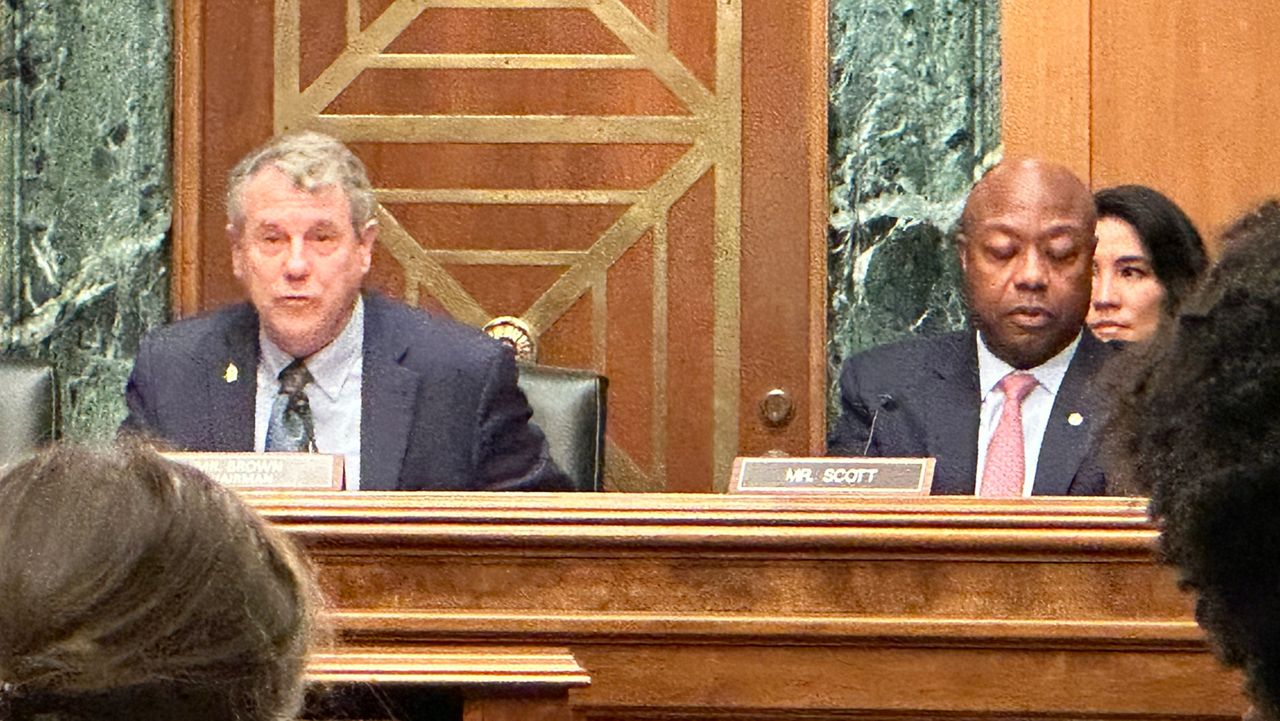COLUMBUS, Ohio — The Ohio Coalition to End Qualified Immunity has its sights set on next year’s election.
But, Ohio Attorney General Dave Yost rejected the groups petition for a constitutional ballot amendment sending them back to the drawing board. It’s sixth time the group has tried to get a constitutional ballot amendment approved to end qualified immunity.
What You Need To Know
- The Ohio Coalition to End Qualified Immunity is trying to get a proposal on next year's ballot to get rid of qualified immunity
- Attorney General Dave Yost rejected the group's petition
- This is the sixth time the group has tried to put forth a petition to get rid of qualified immunity
Yost rejected the petition they submitted, saying the group did not meet the requirement of submitting a fair and truthful summary of the proposed amendment. Ohio’s qualified immunity law protects government employees from being held individually liable in a civil lawsuit.
"The way this is structured, it's done with the officers in mind," said Kyle Pierce, Executive Director of the Ohio Coalition to End Qualified Immunity. "The liable party and have these civil suits brought forward when the government does violate a person's constitutional rights."
Pierce says local government and law enforcement officers need to be held accountable But, law enforcement officers see qualified immunity in a very different light.
"Nobody would do this job if they knew every day they were going to personally be sued," said Brian Steel, Executive Director of the Fraternal Order of Police Capital City Lodge #9. "Let's be honest, as police officers we make hard decisions."
Steel said qualified immunity lets government employees perform their daily tasks in their jobs without the threat of being held personally liable. He said, for example, if a police officer pulls someone over for a traffic stop, they won’t be threatened with a lawsuit because of qualified immunity. That’s why he said this proposal could have drastic consequences.
Law professor Michael Benza at Case Western Reserve University says ending qualified immunity completely comes with risks.
"As a general matter, qualified immunity serves a very useful purpose," Benza said. "Completely eliminating it would probably wreck a significant amount of havoc in our governmental entities."
He also acknowledges that some see the law as giving officers too much leniency.
"So the big controversy today is the scope of qualified immunity that seems to provide absolute protection for especially police officers engaging in what appears to be significant forms of misconduct," Benza said. "That is, use of force against individuals or against groups."
Meanwhile, as the Ohio Coalition to End Qualified Immunity works to get this on the ballot next November, criminal defense attorney Ian Freedman paints the picture of what Ohio voters would need to consider.
“I think it’s really put in a great divide,” Freedman said. “Those who now are pointing to all of these situations where there should have been accountability by the police, prosecutors or any other division of law enforcement. Those on the other side are saying, be careful what you ask for, because without qualified immunity, you’re not going to have the sort of protections in place because people are going to be scared to act.”










